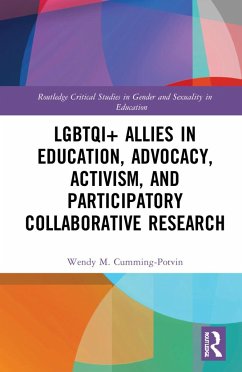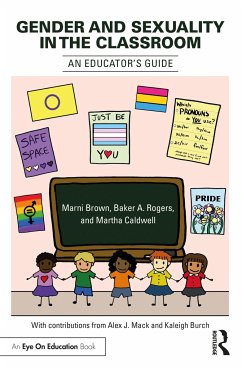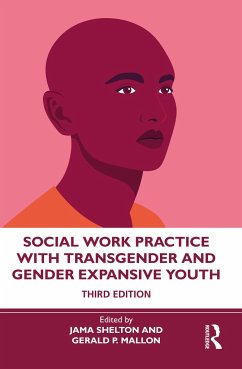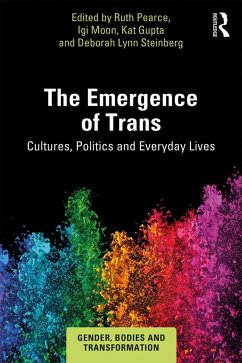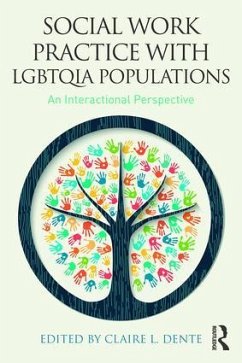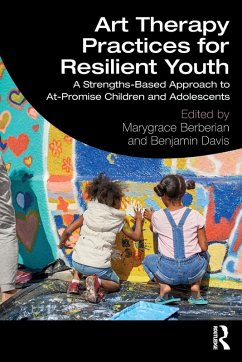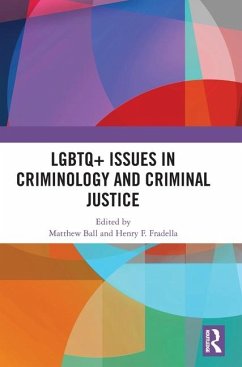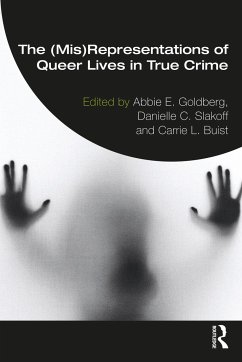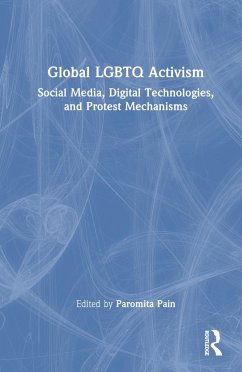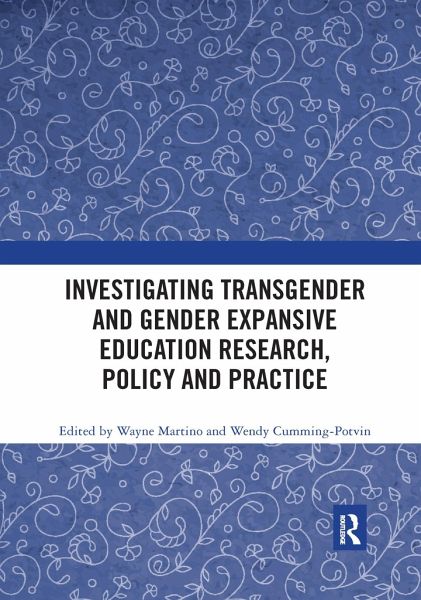
Investigating Transgender and Gender Expansive Education Research, Policy and Practice
Versandkostenfrei!
Versandfertig in 6-10 Tagen
43,99 €
inkl. MwSt.
Weitere Ausgaben:

PAYBACK Punkte
22 °P sammeln!
This book addresses an emerging and vital field of scholarship, which deals with transgender- and gender-expansive-informed education, policy, and practice.The collection provides a framework for thinking about the relevance of Transgender Studies for the field of education and specifically for K-12 schooling contexts. It argues for the need to engage transgender-informed epistemologies and provides insight into trans-affirmative education research, policy contexts, and practices with the view to generating knowledge about how the experiences of transgender and non-binary youth, gender non-con...
This book addresses an emerging and vital field of scholarship, which deals with transgender- and gender-expansive-informed education, policy, and practice.
The collection provides a framework for thinking about the relevance of Transgender Studies for the field of education and specifically for K-12 schooling contexts. It argues for the need to engage transgender-informed epistemologies and provides insight into trans-affirmative education research, policy contexts, and practices with the view to generating knowledge about how the experiences of transgender and non-binary youth, gender non-conformity, and gender-creative expression are being addressed in the education system. Topics addressed range from trans-informed policy analysis and enactment across various contexts to addressing central concerns and polemics related to the policing and regulation of students' gender identities and expression, with respect to washroom space in schools and the use of gender-neutral pronouns. The book is timely and pertinent, especially given that transphobia and addressing gender justice in the education system have been identified as significant human rights issues which require urgent intervention.
Overall, this collection points to both the productive potentialities of this emerging body of research, and the limitations and challenges that need to continue to be addressed in the realization of a commitment to enacting a critical trans politics in education. This book was originally published as a special issue of Gender and Education.
The collection provides a framework for thinking about the relevance of Transgender Studies for the field of education and specifically for K-12 schooling contexts. It argues for the need to engage transgender-informed epistemologies and provides insight into trans-affirmative education research, policy contexts, and practices with the view to generating knowledge about how the experiences of transgender and non-binary youth, gender non-conformity, and gender-creative expression are being addressed in the education system. Topics addressed range from trans-informed policy analysis and enactment across various contexts to addressing central concerns and polemics related to the policing and regulation of students' gender identities and expression, with respect to washroom space in schools and the use of gender-neutral pronouns. The book is timely and pertinent, especially given that transphobia and addressing gender justice in the education system have been identified as significant human rights issues which require urgent intervention.
Overall, this collection points to both the productive potentialities of this emerging body of research, and the limitations and challenges that need to continue to be addressed in the realization of a commitment to enacting a critical trans politics in education. This book was originally published as a special issue of Gender and Education.





